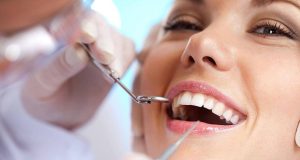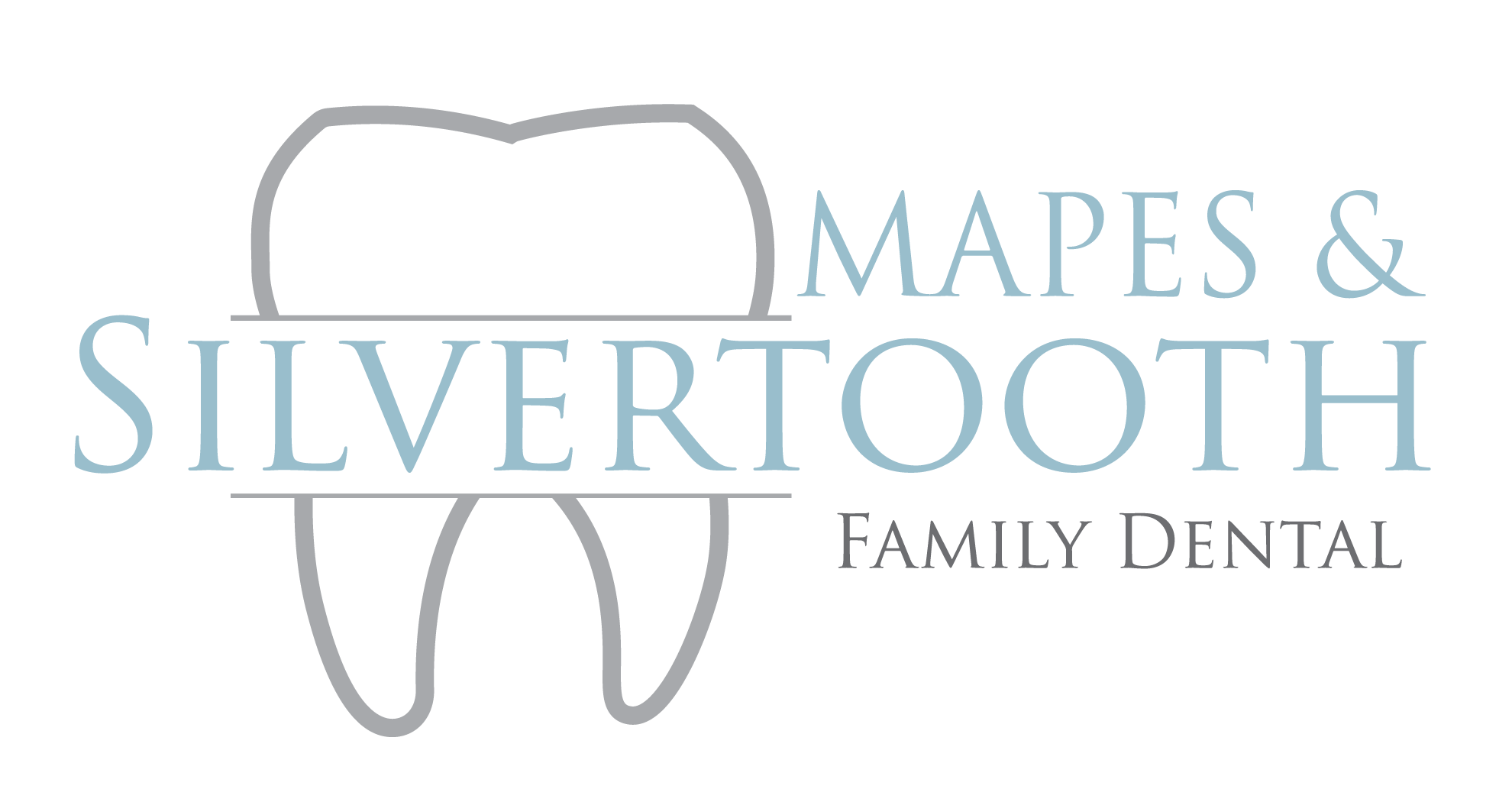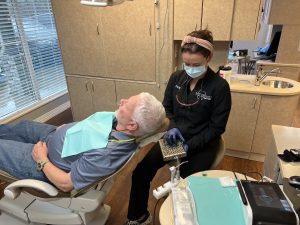Dental Hygiene and Hygienists
Expert Dental Hygiene Care in Kilgore TX can be found right here at Silvertooth and Whinery Family Dental !

They use the latest techniques and technologies to ensure that you receive the best possible care, and they are dedicated to helping you achieve and maintain a healthy smile. Whether you are looking for a routine check-up, a deep cleaning, or other dental services, you will find an expert dental hygienist in Kilgore, TX who can help.
What is Dental Hygiene?
Dental hygiene is keeping one's mouth clean and free of disease and other problems (including bad breath). It combines good oral hygiene (brushing, flossing, etc.) and regular dental checkups. It is essential for both medical and aesthetic reasons. Poor oral hygiene can lead to several problems, including gum disease, tooth decay, and bad breath.
In addition, it can also put you at risk for more severe health problems, such as heart disease. On the other hand, good oral hygiene can help you maintain a healthy mouth and a bright smile. Therefore, seeing a dentist regularly for checkups and brushing and flossing your teeth daily is important.
What Does Dental Hygiene Include?
There are two main aspects of dental hygiene:
1. Preventive measures are the key to avoiding oral problems and diseases. At Silvertooth and Whinery Family Dental in Kilgore, TX, our dental hygienists are trained to help you maintain good oral health by emphasizing preventive measures. We offer a wide range of preventive services such as routine cleanings, exams, and X-rays to detect dental problems early on and prevent them from progressing into more serious issues.
Our dental hygienists also educate our patients on proper oral hygiene practices, including the correct brushing and flossing techniques, the importance of a healthy diet, and avoiding bad habits such as smoking, which can increase the risk of gum disease and other oral problems. By following these preventive measures, our patients can maintain a healthy mouth and prevent many dental problems from occurring in the first place.
2. In addition to preventive measures, we also offer a variety of treatments for existing oral problems. We provide restorative dental services such as fillings, crowns, and bridges to restore the function and appearance of damaged or missing teeth. Our team is also equipped to provide periodontal therapy to treat gum disease and prevent its progression.
We understand that every patient has unique needs and goals when it comes to oral health. Our dental hygienists will work closely with you to develop a personalized treatment plan that addresses your specific concerns and helps you achieve optimal oral health.
Preventive Measures
The best way to maintain good oral health is to prevent problems before they start. This includes practicing good oral hygiene at home and visiting the dentist regularly for checkups and cleanings.
Good oral hygiene habits include:
- Brushing your teeth : at least twice a day with a toothpaste that contains fluoride. Brushing your teeth is one of the most important habits for maintaining healthy teeth and gums. You should aim to brush your teeth at least twice a day, for two minutes each time. Use a toothpaste that contains fluoride to strengthen your teeth and protect them from cavities. It's also important to replace your toothbrush every three to four months or when the bristles become fray
- Flossing everyday: Flossing is an essential part of your oral hygiene routine as it helps to remove food particles and plaque from between your teeth where a toothbrush cannot reach. Flossing once a day can help to prevent gum disease and tooth decay.
- Eating a balanced diet and avoiding sugary snacks: Eating a balanced diet rich in fruits, vegetables, whole grains, and lean proteins can help to maintain optimal oral health. Avoiding sugary snacks and drinks is also important, as sugar can increase the risk of tooth decay.
- Avoiding tobacco products: Smoking and using other tobacco products can increase the risk of gum disease, tooth decay, and oral cancer. Quitting tobacco products can improve your oral health and reduce your risk of developing these conditions.
- Regular dental checkups: Regular dental checkups are essential for maintaining optimal oral health. You should visit your dentist at least twice a year for routine cleanings and exams. Your dentist can detect and treat oral health problems early on before they become more serious.
In addition to practicing good oral hygiene at home, it is also important to visit the dentist regularly for checkups and cleanings.
What is a Dental Hygienist?
A dental hygienist is a vital member of any dental team. They are responsible for cleaning teeth, taking x-rays, and educating patients on proper oral care.
Dental hygienists must be licensed in the state where they practice. To become licensed, they must complete an accredited dental hygiene program and pass a national board exam. Dental hygienists play a crucial role in maintaining oral health.
What Does a Dental Hygienist do?
Visiting the dentist is vital to maintain good oral hygiene and prevent cavities, gum disease, and other dental problems. The following is a brief overview of what dental hygienists do.
- Evaluate a patient's oral health: Dental hygienists will take a full medical history and ask about any dental concerns you may have. They will then thoroughly examine your mouth, teeth, gums, and throat. This will help them identify any areas of concern and develop a treatment plan.
- Clean teeth: One of the most important roles of dental hygienists is to clean teeth. During a cleaning, they will remove plaque and tartar from your teeth. Plaque is a sticky film of bacteria that forms on your teeth, and tartar is hardened plaque. If not removed, plaque and tartar can lead to gum disease and tooth decay.
- Educate patients on oral care: In addition to cleaning teeth, dental hygienists also play an important role in educating patients on proper oral care. They will often give patients tips on how to brush and floss properly. They may also provide information on diet and lifestyle choices that can impact oral health.
- Screening patients: Another responsibility of dental hygienists is to screen patients for oral cancer. They will look for any signs or symptoms of oral cancer, such as lumps or sores in the mouth. If they find anything suspicious, they will refer the patient to a dentist or doctor for further evaluation.
- Applying preventive care: Also, dental hygienists may use preventive treatments, such as sealants or fluoride. Sealants are thin coatings applied to the teeth to prevent tooth decay. Fluoride is a mineral that helps protect teeth from cavities. Dental hygienists play an important role in maintaining their patients' oral health.
What to Expect When Visiting a Dental Hygienist
If you are visiting a dental hygienist for the first time, you may be wondering what to expect. Here are some things you can expect when visiting a dental hygienist:
- Oral health assessment: Your dental hygienist will begin by examining your teeth and gums to identify any potential oral health problems.
- Cleaning: Your dental hygienist will use special tools to remove any plaque and tartar buildup from your teeth. They may also polish your teeth to remove surface stains.
- Education: Your dental hygienist will educate you on proper oral hygiene practices, including brushing, flossing, and a healthy diet. They may also provide tips on how to improve your oral health.
- X-rays: Your dental hygienist may take X-rays to identify potential oral health problems that are not visible during a visual examination.
- Treatment plan: Based on your oral health assessment, your dental hygienist will develop a treatment plan tailored to your individual needs. This may include recommendations for further treatment or follow-up appointments.
- Local anesthesia: If you require any treatment that may cause discomfort, such as a deep cleaning or periodontal treatment, your dental hygienist may provide local anesthesia to alleviate any discomfort.
- Follow-up appointments: Your dental hygienist may schedule follow-up appointments to monitor your progress and ensure that your oral health is improving.
Why Is Dental Hygiene Important?
Maintaining good dental hygiene is essential for several reasons. Here are some of the reasons why dental hygiene is important:
- Preventing tooth decay and gum disease: Brushing, flossing, and regular dental checkups can help prevent tooth decay and gum disease. These two conditions can cause pain, discomfort, and even tooth loss if left untreated.
- Maintaining a healthy smile: Good dental hygiene practices can help keep your teeth and gums healthy and looking their best. This can boost your confidence and help you feel more comfortable when interacting with others.
- Improving overall health: Poor oral hygiene has been linked to several health problems, including heart disease, diabetes, and respiratory infections. By taking care of your teeth and gums, you may be able to improve your overall health and reduce your risk of developing these and other health problems.
- Saving money: Preventive dental care, such as regular checkups and cleanings, can help identify and treat dental problems before they become more serious and expensive to treat. By taking care of your teeth and gums, you may be able to save money on dental treatments in the long run.
If you're looking for a dental hygienist in Kilgore, TX who can help you achieve and maintain good oral health, look no further than Silvertooth and Whinery Family Dental. Our team of qualified and experienced professionals is dedicated to helping you achieve a healthy, beautiful smile through preventive dental care and effective treatment of existing oral problems. Contact us today to schedule your appointment and take the first step toward better dental health.
Get In Touch
We encourage you to contact us with any questions or comments you may have. Please call our office or use the quick contact form below.



